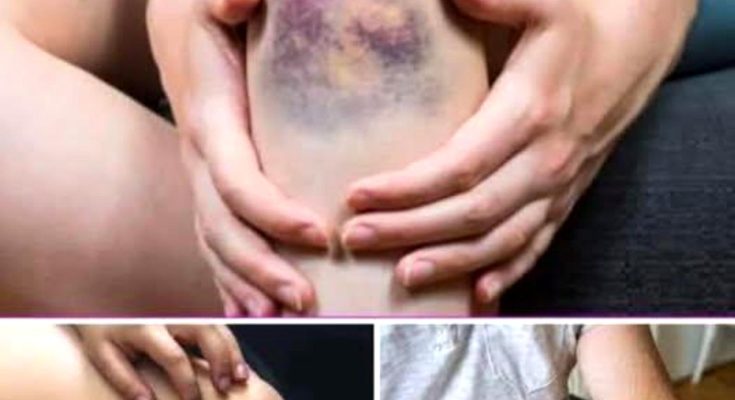Bruises are a common occurrence, often resulting from minor injuries. However, if you frequently notice unexplained bruises, it could be a sign of an underlying health condition. Understanding the causes and recovery methods is essential for maintaining good health.
Why Do Bruises Appear?
Bruises form when blood vessels under the skin break due to impact or pressure. The blood leaks into the surrounding tissue, creating a dark mark that changes color over time. Some common causes include:
-
Accidental injuries – Bumping into objects or falling.
-
Vitamin deficiencies – Lack of Vitamin C or K can weaken blood vessels.
-
Medications – Blood thinners like aspirin can make bruising more frequent.
-
Aging – As skin becomes thinner with age, blood vessels are more vulnerable.
-
Underlying health conditions – Liver disease, blood disorders, or infections may contribute to excessive bruising.
Signs That a Bruise Might Indicate a Health Problem
Most bruises heal naturally, but in some cases, they could be a warning sign. Be cautious if you notice:
-
Bruises that appear suddenly without injury.
-
Bruises that take too long to heal (more than two weeks).
-
Frequent bruising in unusual areas, such as the back or stomach.
-
Bruises accompanied by excessive bleeding from cuts or gums.
If you experience any of these, it’s best to consult a doctor for further evaluation.
How to Speed Up Bruise Recovery
If you have a bruise, there are simple ways to help it heal faster:
1. Apply Ice
Right after an injury, apply an ice pack wrapped in a cloth for 10–15 minutes. This reduces swelling and prevents the bruise from spreading.
2. Elevate the Area
If the bruise is on your leg or arm, keep it elevated to reduce blood flow and minimize swelling.
3. Use Arnica or Vitamin K Cream
These natural remedies help speed up the healing process by improving blood circulation and reducing discoloration.
4. Eat Foods That Promote Healing
Increase your intake of:
-
Vitamin C (oranges, strawberries) to strengthen blood vessels.
-
Vitamin K (leafy greens, broccoli) to help blood clot properly.
-
Protein-rich foods (eggs, lean meats) for tissue repair.
5. Avoid Blood-Thinning Medications
Unless prescribed, limit aspirin and ibuprofen intake, as they can prolong bruising.
Final Thoughts
While bruises are often harmless, persistent or unexplained bruising should not be ignored. Maintaining a balanced diet, protecting your skin, and being aware of any unusual changes in your body will help keep you healthy. If you have concerns, always seek medical advice.



